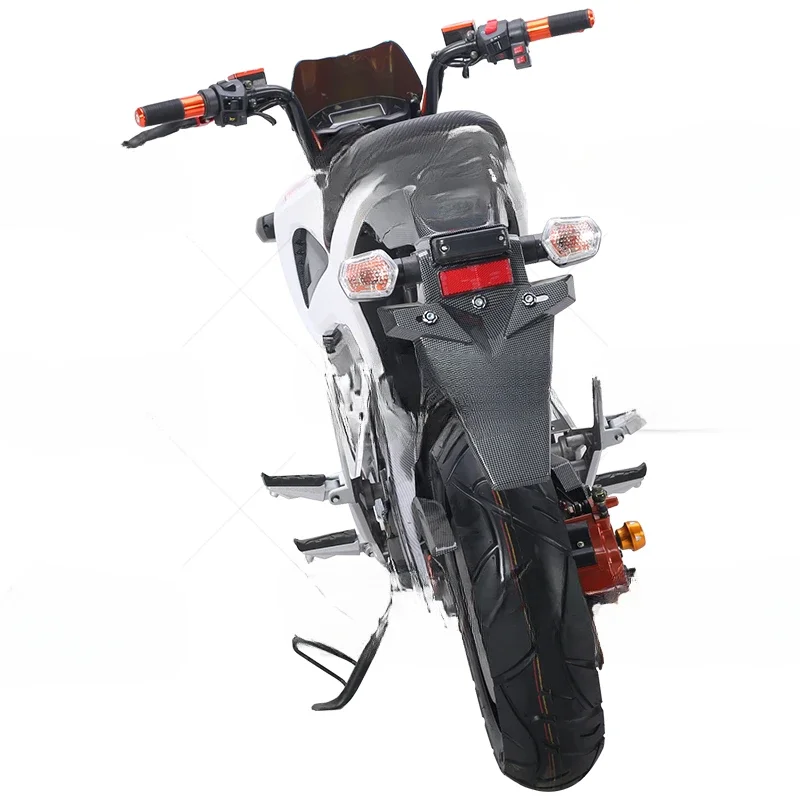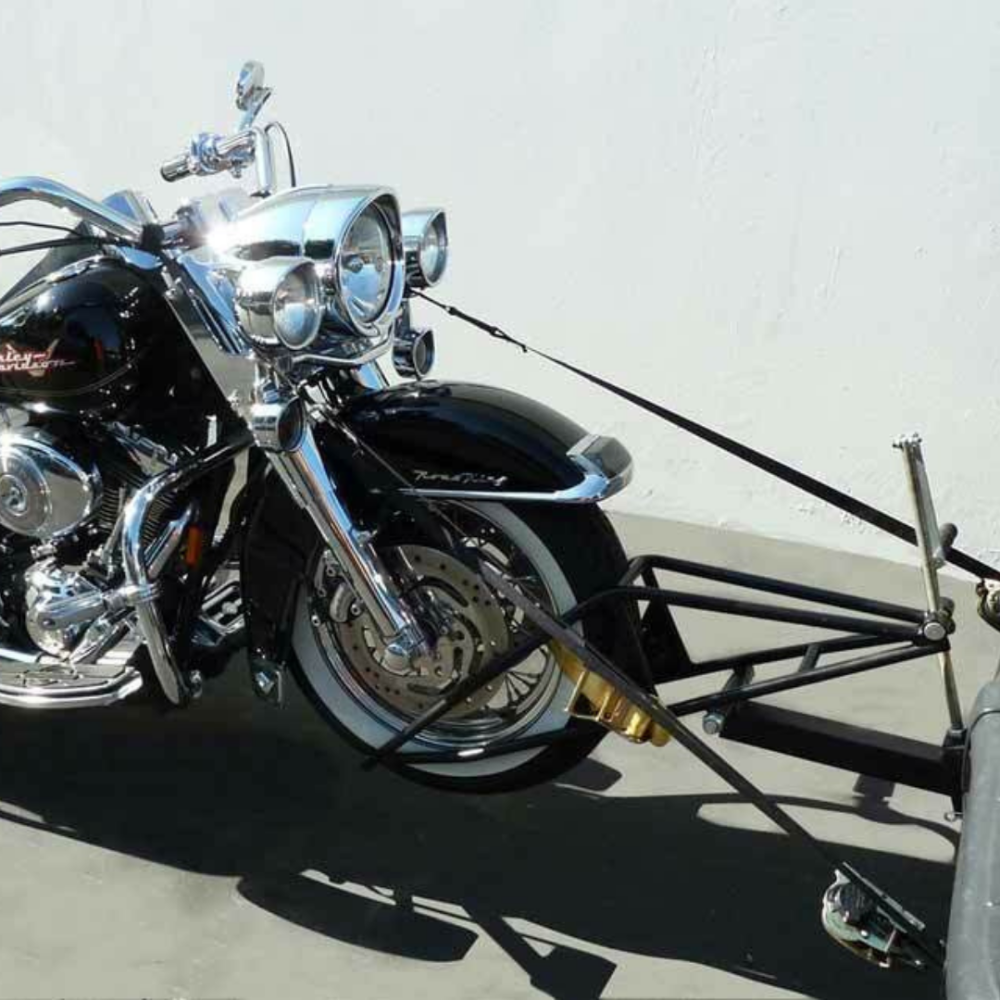The Issue of a Missing Title for Motorcycles
When buying a vintage or second-hand motorcycle, the thrill of the purchase can be dampened by the realization that the bike lacks a title. Ownership without a proper title is not only legally troubling but can hinder your ability to freely and properly enjoy your new ride. To operate and sell the motorcycle legally, acquiring a title is a significant hurdle to overcome.

Consequences of a Missing Title
A missing title can have serious repercussions. Without it, registering your bike becomes a complex challenge. Insurance companies may refuse coverage, and selling the motorcycle in the future could be near impossible. Additionally, riding on public roads without a license plate, which requires a valid title, could result in legal penalties.
Steps to Take if the Title is Missing
Identify the last registered owner or obtain a bill of sale from the seller. Next, contact the local DMV to check the motorcycle’s history and any existing liens. If the title is simply lost, you can apply for a duplicate. However, if the bike’s history is murky, consider a bonded title or a transferable registration where appropriate. Running a VIN verification is essential to ensure the bike isn’t stolen or branded as salvage; this step can preempt future legality issues. Engage with professional titling services if you encounter roadblocks in the process.
VIN Verification Importance
VIN verification is a crucial step in titling a motorcycle. It’s the process of confirming the Vehicle Identification Number (VIN) matches official records. It ensures that the motorcycle isn’t stolen or misrepresented. Verification can prevent legal issues and financial loss.
What is VIN Verification?
VIN verification is checking a bike’s VIN against national databases. These databases contain details of all registered vehicles. The check involves comparing the motorcycle’s VIN with information from law enforcement and motor vehicle agencies. It confirms if the bike has a clean history or if there are any issues tied to it.
How to Verify a Motorcycle’s VIN
To verify a motorcycle’s VIN, you need access to online VIN check services or official resources. Here’s a simple process:
- Locate the VIN on the motorcycle. It’s usually on the frame or engine.
- Note down the 17-character VIN accurately.
- Use a reputable VIN check service or consult the local DMV.
- Provide the VIN and pay any necessary fee.
- Review the VIN check report for any red flags.
By performing VIN verification, you protect yourself from legal trouble and ensure that you know the bike’s history. This is a key step to getting a title for your motorcycle.
Dealing with Salvage Title Motorcycles
Navigating the complexities of salvage title motorcycles can be tricky, but understanding the process is vital for any rider.
Understanding Salvage Titles
A salvage title is given to a motorcycle with damage that costs more to repair than its market value. This can occur from accidents, flood, or theft recovery. Despite the damage, these bikes can still be restored and ridden.
Process for Restoring a Salvage Title Motorcycle
To restore a salvage title motorcycle, start with a thorough assessment. Repair any damage to make the bike roadworthy. Next, seek a safety inspection from a local authority. They will check if repairs meet legal standards. Once you pass inspection, present the documents to your DMV. Apply for a rebuilt title. This is your key to legally riding the bike on public roads. Remember to keep all repair records and receipts. They prove the work done for the DMV’s review.
Stolen Motorcycles and Title Implications
Having a motorcycle without a proper title can sometimes mean it’s stolen. This can be one of the biggest roadblocks when acquiring or selling a bike. It’s crucial to recognize and handle the situation carefully to avoid legal troubles.
Recognizing a Stolen Motorcycle
Identifying if a motorcycle is stolen is vital before purchasing or attempting to acquire a title. Key indicators include an absent or tampered VIN and a seller’s reluctance to provide detailed bike history. Always ask for documentation and proof of ownership. A quick, cost-effective VIN check can confirm the motorcycle’s legal status.
Action Plan if the Motorcycle is Stolen
If you realize the bike is stolen, don’t try to get a title. Report the situation to the police immediately. Handling stolen property can lead to legal penalties. To protect yourself, perform a VIN check before the purchase. This can save you from serious legal complications. Always prioritize buying bikes with clear titles or verifiable ownership history to avoid these risks.
 Liens and How They Affect Motorcycle Titles
Liens and How They Affect Motorcycle Titles
Liens on a motorcycle can create real headaches when trying to transfer ownership. A lien is a right against an asset, granted to a creditor. It typically refers to the legal claim of a lender. Until the debt is paid off, the lien remains on the title.
Identifying Unknown Liens
To avoid surprises, check for hidden liens before buying a motorcycle. Start by requesting a VIN verification report, which will reveal if any lender has a stake in the bike. Contact the local DMV, and consult official records. This is a crucial step for a clear purchase.
Clearing Liens before Title Transfer
Clearing a lien is a must before you can transfer the title and legally claim ownership. You’ll need to repay the outstanding debt if a lien exists. Lenders usually issue a lien release document when a loan is paid off. Present this to the DMV as part of the titling process. In some cases, negotiating with the lender might be necessary. Legal counsel can offer help if the process becomes complex.
By addressing liens effectively, you pave the way for a clean title transfer. This ensures you can enjoy your motorcycle without legal concerns.
Surety Bonds and Bonded Titles Explained
Navigating the titling process for a motorcycle without a title can lead to a unique solution: surety bonds and bonded titles. Let’s break down these concepts to understand their role in motorcycle ownership.
What is a Surety Bond?
A surety bond is a promise by a guarantor to pay a debt or fulfill an obligation if the principal fails to do so. In the context of motorcycles, it’s a safety net that protects the state in case of future ownership disputes. Think of it as a form of insurance that backs your claim to the bike.
Obtaining a Bonded Title for a Motorcycle
To get a bonded title, you first need to prove your ownership attempts. This includes showing purchase documents and efforts to find the bike’s history. Then, you buy a surety bond from an insurance company. The bond amount is often based on the motorcycle’s value.
Next, you hand over the bond with your application to the DMV. If they accept it, you get a bonded title. This title carries a ‘bonded’ brand for a set term, usually a few years. During this time, if no one disputes your ownership, the title becomes ‘clean’ or ‘clear.’
This process provides a legal pathway to title motorcycles when conventional methods fail. It’s a vital tool in ensuring riders can enjoy their bikes without lingering legal worries.
Simplifying Motorcycle Title Transfer with Transferable Registration
Navigating motorcycle ownership without a title can be daunting, especially with older bikes. However, transferable registrations offer a streamlined process for title transfer, simplifying ownership transition.
Transferable Registration Process
The path to transferable registration begins by checking if your state provides it for older motorcycles, typically those 15 years or older. Begin with these steps:
- Verify the motorcycle’s age is within the state’s criteria.
- Obtain any existing registration documents from the seller or previous owner.
- Submit a request to your DMV with the motorcycle’s details and registration documents.
- The DMV will issue a transferable registration after verifying the bike’s eligibility.
- Use the transferable registration to apply for a title in your name.
Benefits of Transferable Registration for Older Bikes
Older motorcycles often escape the need for traditional titles through transferable registrations, allowing them to be bought and sold more easily. Benefits include:
- Reduced paperwork compared to applying for a new title.
- Expedited ownership transition, crucial for older, classic motorcycles.
- Lower costs in states where the process is simplified and fees are minimal.
- Increased appeal for buyers seeking vintage bikes without the hassle of titling.
Transferable registrations, therefore, serve as a valuable tool for riders dealing with motorcycles that lack a title, offering a legal and hassle-free solution to enjoy the ride.
 How to Title a Motorcycle With a Bill of Sale
How to Title a Motorcycle With a Bill of Sale
Acquiring a title for a motorcycle through a bill of sale is doable with the right steps. The bill of sale acts as crucial evidence in the absence of a title, but due diligence is key.
Validating Proof of Ownership
When you have a bill of sale, it’s important to validate the document properly. This ensures legal protection if questions about the motorcycle’s ownership arise. Make sure the bill of sale is comprehensive and includes:
- The motorcycle’s make, model, and year.
- The date of the sale and the amount paid.
- Full names and signatures of both the buyer and seller.
- The VIN number of the motorcycle.
Confirm that all details match the motorcycle in question. This validation proves your ownership and acts as a foundation for the titling process.
Steps to Ensure a Smooth Titling Process
Follow these steps to use a bill of sale to title your motorcycle:
- Verify that the VIN on your motorcycle matches the one on the bill of sale.
- Conduct a VIN check to ensure the bike is not stolen or salvaged.
- Take the bill of sale and your VIN check report to the local DMV.
- Fill out the necessary DMV forms for title application.
- Pay any applicable fees and wait for the title processing.
Each step is crucial to ensure your application goes through without delays. By being thorough, you stand a good chance of successful motorcycle titling with just a bill of sale.
Conclusion
Obtaining a motorcycle title is a pivotal step in ensuring you have proper ownership of your vehicle. The detailed processes outlined in this guide will give you the tools necessary to navigate the often complex title acquisition landscape. From gathering documents and visiting local offices to understanding the differences between title types, being informed will ultimately lead to a smoother transition towards motorcycle ownership. Thus, whether purchasing from a dealer or a private seller, knowing how to get title for motorcycle is essential for any rider seeking to enjoy the open road with peace of mind.
